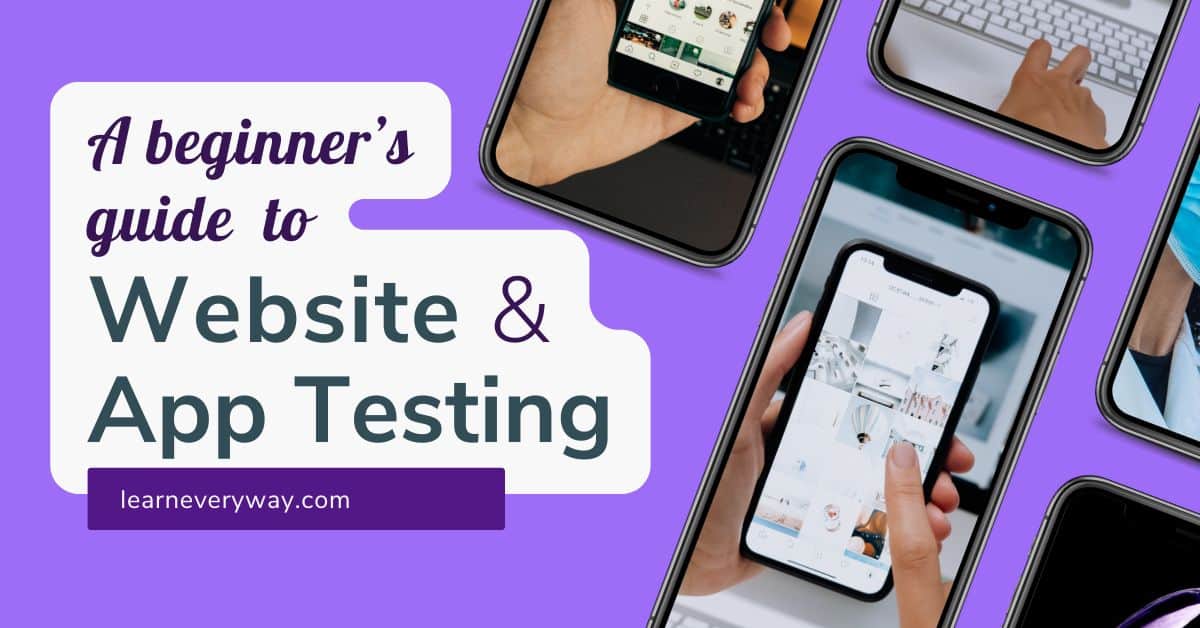Some of the links in this article are affiliate links, which means I may earn a small commission if you sign up or make a purchase through them, at no additional cost to you. Please note that my opinions and experiences are based on my own research and use of the platforms. I only recommend products and services that I believe will be valuable to my readers. Thank you for supporting my work!
📝 Introduction
In a world where languages and cultures are so diverse, the ability to communicate across languages has never been more important. Whether you’re expanding your business globally, needing official documents for legal matters, or creating healthcare materials, translation services are essential.
In this comprehensive guide, I will break down what translation services are, why they matter, the types of translation services, and how to choose the best one for your needs. By the end of this article, you’ll have a solid understanding of the translation services landscape and how they can help you.
🤔 What Are Translation Services?
Translation services involve the conversion of written or spoken content from one language to another while maintaining the original message’s meaning, tone, and context. It’s not just about swapping words; it’s about effectively transferring ideas, emotions, and cultural nuances to ensure clarity and understanding.
Whether you’re dealing with simple emails, technical manuals, or legal contracts, translation services are designed to meet the unique needs of various industries. These services can be provided by freelancers, translation agencies, or automated tools (though for important documents, human expertise is usually the best choice).
🌍 Why Are Translation Services Important?
1. Expanding Your Reach Globally 🌎
If you’re a business owner looking to expand into international markets, translation services are essential for reaching a global audience. Offering content in multiple languages allows your brand to communicate with non-native speakers effectively. Whether it’s translating your website, social media posts, or product descriptions, translation helps you build a stronger connection with potential customers around the world.
2. Ensuring Legal Compliance 📜
Many industries, especially legal and healthcare, require precise and certified translations to comply with regulations. For instance, translated contracts must be legally sound, and medical patient records need to be accurately interpreted to avoid miscommunication. Inaccurate translations in these areas could have serious legal or health consequences.
3. Improving Customer Trust 🤝
Customers are more likely to trust a company that speaks their language. When you provide materials in your customers’ native languages, you show that you value their culture and understand their needs. Whether it’s product manuals, FAQs, or customer service documents, accurate translations enhance the customer experience and build long-term trust.
4. Making Healthcare More Accessible 🏥
Medical translation services are vital for ensuring that patients fully understand their treatment plans, medication instructions, and healthcare documentation. For healthcare organizations, translating medical records, prescriptions, and consent forms is a necessity for ensuring that patients receive appropriate care, regardless of their language.
🔍 Types of Translation Services
There are many different types of translation services, each suited for specific needs. Let’s break down the most common ones.
📄 Document Translation
Document translation involves translating written text from one language to another. These documents could range from legal contracts to birth certificates to technical manuals. Since accuracy is key, especially for official documents, professional translation services are recommended to ensure legal validity and correct interpretation.
For instance, if you need to translate an immigration document or legal contract, you’ll need to ensure that the translation is certified for official use. Inaccurate translations can cause delays and problems with government agencies or legal authorities.
🌐 Website Translation & Localization
In today’s digital world, translating your website is an essential part of reaching a global audience. However, it’s not just about converting words into another language; it’s about localizing your content for specific markets. Localization includes adjusting things like:
- Currency
- Date formats
- Measurement units
- Cultural relevance of images and colors
Localizing your website makes it more appealing to people in different countries by making it feel like the content was created specifically for them. This can improve user experience and even boost your SEO rankings in new markets.
✅ Certified Translation
Certified translation services are often required when you need to submit documents for official purposes. For example, immigration forms, academic transcripts, or court documents often need to be translated by a certified translator to meet legal requirements. A certified translation guarantees that the translation is accurate and true to the original content, and it’s typically accompanied by a statement from the translator attesting to its accuracy.
These types of translations are accepted by government authorities, legal institutions, and academic organizations worldwide.
🛠️ Technical Translation
Technical translation involves translating highly specialized content related to specific industries such as engineering, IT, or scientific research. This type of translation requires knowledge of both the subject matter and the technical terminology used in that field. It’s crucial for translating:
- User manuals
- Product specifications
- Technical research papers
Only translators with expertise in the subject matter should handle technical translations to ensure accuracy.
💉 Medical Translation
Medical translation is one of the most delicate and critical fields of translation. It involves translating healthcare documents such as:
- Patient records
- Clinical trials
- Medical research papers
Due to the high stakes involved in healthcare, accuracy is paramount. Mistakes can have serious consequences, especially when translating prescription instructions, medical labels, or patient information. Medical translators must be familiar with both medical terminology and the relevant language-specific nuances.
🎯 Marketing and Advertising Translation
Marketing and advertising materials require a type of translation called transcreation. This process adapts your marketing content for new languages and cultures while maintaining the intended emotional appeal and tone of the original message. Transcreation is important for:
- Ad campaigns
- Social media content
- Brand messaging
For instance, a catchy tagline or promotional phrase that works in one language may not have the same impact in another. Transcreation helps you adjust the content to resonate culturally with your target audience while still conveying the intended message.
🎥 Video Translation and Subtitling
Video translation is crucial for businesses and content creators who want to reach global audiences through video content. There are several ways to translate video content:
- Subtitling: Adding translated text at the bottom of the video.
- Dubbing: Replacing the original audio with a translated version.
- Voiceover translation: Adding a new audio track in a different language.
This service helps expand the reach of video content to diverse audiences across the world and is often used in entertainment, corporate training, and e-learning.
🗣️ Interpretation Services
While translation is for written content, interpretation refers to the spoken word. Interpretation is needed when you have to communicate with someone in real time. Some forms of interpretation include:
- Simultaneous interpretation: The interpreter speaks as the speaker talks, often used in conferences.
- Consecutive interpretation: The interpreter speaks after the speaker finishes their thought.
- Over-the-phone interpretation (OPI): This is used for remote meetings or urgent situations.
- Video Remote Interpretation (VRI): An interpreter provides services over video.
Interpretation is particularly important for business meetings, legal proceedings, and medical consultations.
🎯 How to Choose the Right Translation Service
Choosing the right translation service can be challenging, especially with so many options available. Here are some tips to help guide your decision:
1. Identify Your Needs 🧐
What type of translation do you need? Is it for legal documents, marketing materials, or a website? Make sure to choose a provider with expertise in the specific type of translation required for your project.
2. Look for Expertise and Specialization 🌟
Many translation services specialize in certain industries. Whether it’s legal, medical, or technical, make sure the service provider has specialized experience in the field related to your translation needs.
3. Review Reputation and Testimonials ⭐
Before choosing a service, check their reviews and testimonials. Customer feedback can help you gauge the quality of the service, accuracy, and turnaround time.
4. Consider Turnaround Time and Deadlines ⏳
If you’re working on a tight deadline, it’s crucial to find a service that can meet your timeline. Expedited services are often available for urgent translations.
🌟 Conclusion
Translation services are an essential part of today’s globalized world, helping businesses, individuals, and organizations break through language barriers and communicate more effectively. From document translations to website localization, these services ensure that messages are accurately conveyed across languages and cultures.
If you’re looking to expand your global reach, ensure legal compliance, or improve healthcare accessibility, translation services can be a powerful tool to help you achieve these goals.
By understanding the types of translation services available and how to choose the right one for your needs, you can make sure your communication is clear, accurate, and culturally appropriate.
📈 Next Steps:
Now that you know more about translation services, start exploring options based on your specific needs. Whether you’re translating documents, websites, or videos, choosing the right service can help you reach a broader audience and communicate effectively across languages.
❓ FAQs
1. What Is the Difference Between Translation and Interpretation?
- Translation involves written content, while interpretation focuses on spoken language. Interpretation is done in real-time, while translation is typically handled over a longer period.
2. Why Is Certified Translation Important?
Certified translations are required for legal and official purposes. They ensure that the translation is accurate and recognized by institutions, governments, and legal bodies.
3. How Long Does a Translation Take?
The turnaround time depends on the length and complexity of the document. Simple documents may be completed in a few days, while more complex ones might take a week or more.
4. Can I Translate My Own Documents?
While online tools can assist with basic translation, professional translators ensure accuracy, especially for legal, medical, or technical documents.







